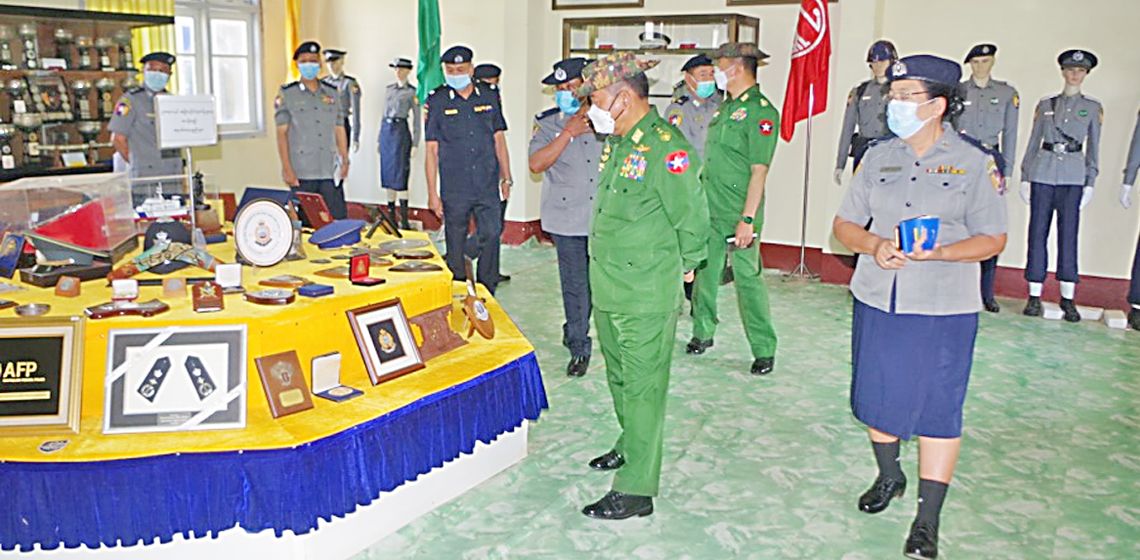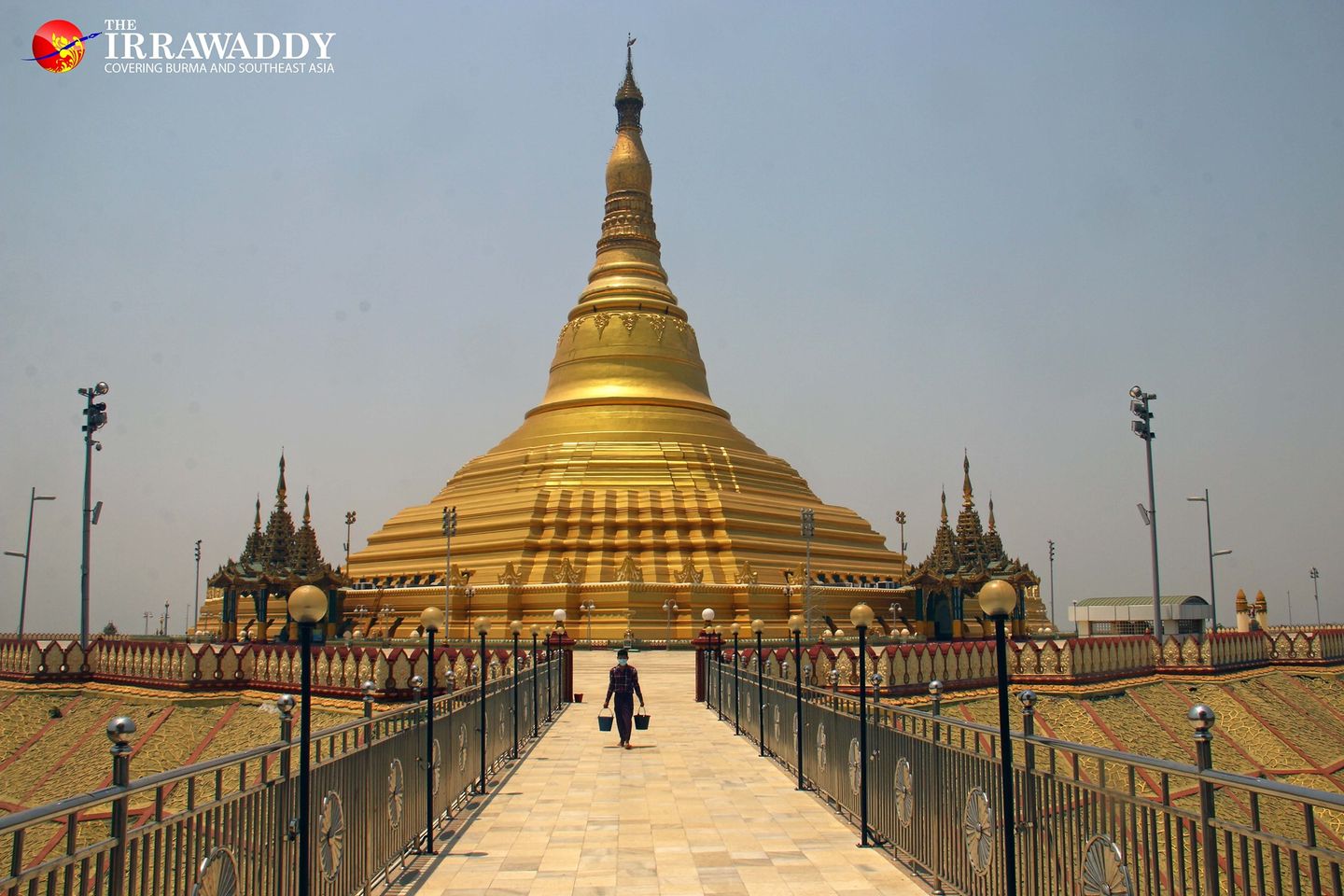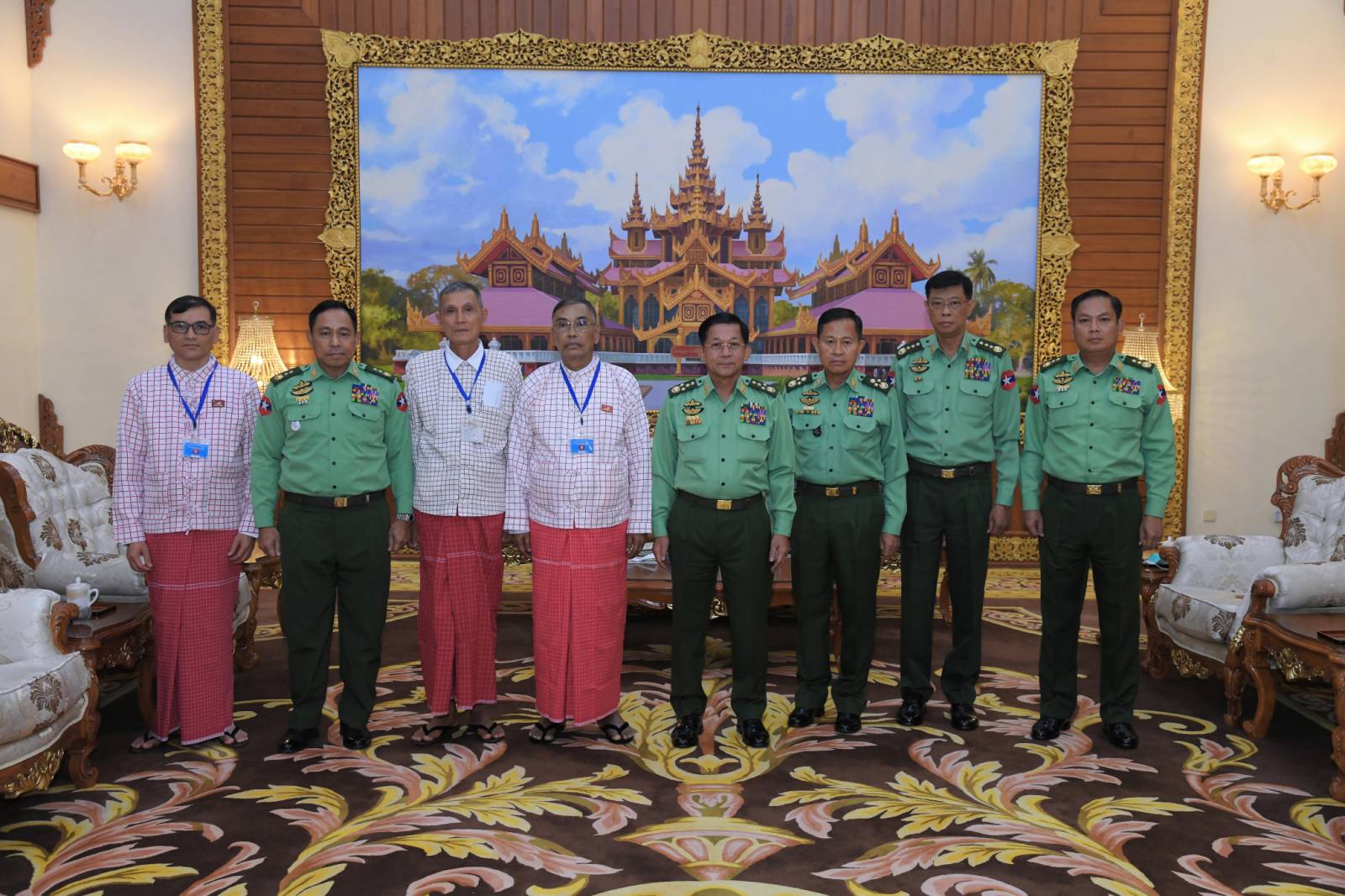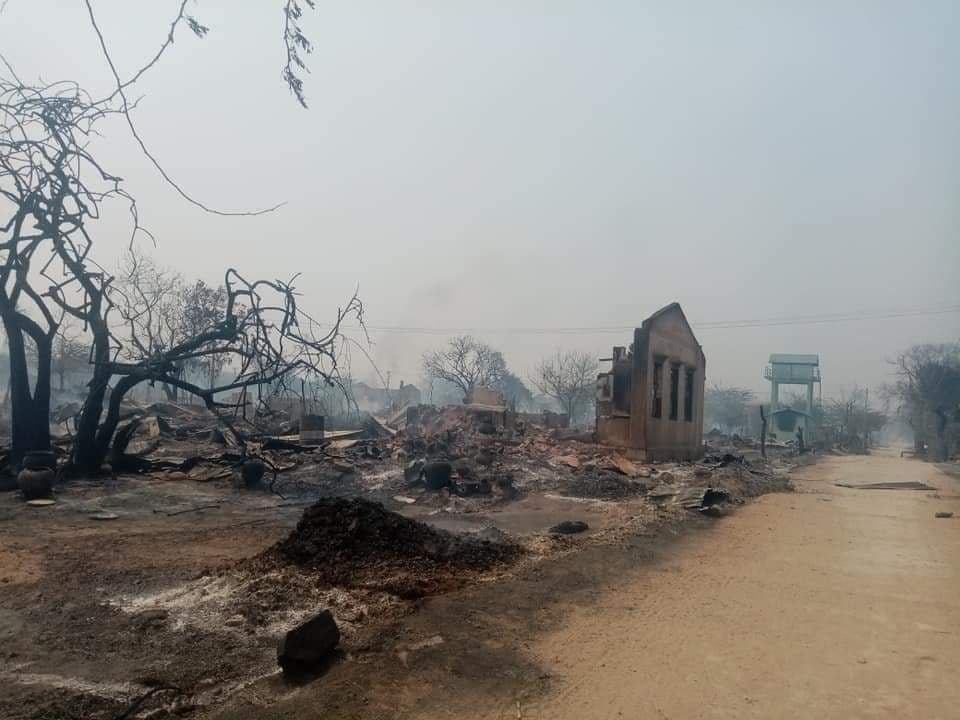Police trainees on edge after visit from minister

The worst nightmares of the students at a police officer training school in Pyin Oo Lwin Township were realized on May 24 when the regime’s Home Affairs Minister Lieutenant General Soe Htut paid the facility a visit.
During his visit the minister urged trainees to expand their knowledge of warfare, military strategies and tactics.
Amid heavy casualties inflicted on Myanmar’s regime forces in daily clashes with the People’s Defense Force and ethnic armed organizations, junta leader Min Aung Hlaing signed a new law in March making it compulsory for law enforcement officials to fight alongside soldiers on the front lines.
At the same time, the military regime raised the official retirement age for civil servants from 60 to 62 in a bid to shore up its dwindling military manpower, which has been hit by battlefield attrition and desertions since the coup.
The home affairs minister’s visit to the training school is another signal that police officers will have to serve on battlefields as necessary in central Myanmar and ethnic areas.
Nearly 7,000 police have joined the Civil Disobedience Movement and nearly 3,000 of them including two police majors have defected to the parallel National Unity Government, said its Immigration and Population Ministry.
Regime envisions tourist stampede

Junta leaders seem to be harboring the illusion that conflict-torn Myanmar is about to see a surge in foreign visitors, judging from regime Hotels and Tourism Minister Dr. Htay Aung’s recent instruction to hoteliers in the administrative capital, Naypyitaw, to prepare for an influx.
Myanmar’s tourism industry has ground to a halt since the COVID-19 pandemic hit in 2020, but last month the regime lifted a ban on international commercial flights imposed in that year to prevent the spread of coronavirus infections.
Junta leaders seem to be under the impression that lifting the ban will prompt many foreign tourists to visit the country, and Dr. Htay Aung has urged Naypyitaw hotels to prepare for them. Which begs the question: Was the city ever a popular destination among foreign travelers, even before the coup or COVID?
At a meeting last year to discuss development plans for Naypyitaw, junta leader Min Aung Hlaing boasted of the capital’s pagodas and National Races Village—a representation in miniature of landmarks around Myanmar—not to mention a water fountain garden and a zoo. But none of these places has proven popular, even among local travelers.
The regime, whose soldiers are being forced to cower behind sandbag-fortified outposts and pillbox bunkers, did not say what security arrangements it had in mind for the expected horde of foreign travelers.
The US has advised its citizens against traveling to Myanmar.
Shan, Mon leaders sit down with junta, draw ire

When Min Aung Hlaing’s so-called peace talks started on May 20, one of the first invitees to show up was General Yawd Serk, chairman of the Restoration Council of Shan State/Shan State Army-South (RCSS/SSA-S). Close behind him was Nai Aung Min, the vice chair of the New Mon State Party (NMSP), an ethnic Mon armed group.
Apart from their eager embrace of an event most of the country’s major ethnic armed groups have shunned as a farce that excludes key players, these two leaders have something else in common: they lead groups that aren’t fighting the regime. Add to that the public ire they have drawn—even from their own ethnic communities—for attending the junta’s talks.
Comments that Yawd Serk made about the regime last year—that “No one trusts the Myanmar army” and “The junta is illegal and unconstitutional”—have come back to haunt him and have been widely ridiculed. If he meant them, many wonder, why did he bother to fly to Naypyitaw to talk with the junta in March 2021?
As for the NMSP, an ethnic Mon woman said the party had abandoned not only the Mon people but also the whole country. “Mon politicians are serving their own interests with enormous ego,” she said.
Both parties offered the same defense: that their meetings with the junta were necessary to solve political problems through political means, in order to build a federal union.
However, anyone who follows the Myanmar peace process knows that it is the military that has hindered the formation of a federal union, offering this or that reason at successive peace meetings for why one cannot be established. It would be unwise for ethnic leaders to hope for something that the military is not willing to give them.
Torching farms, promising food security

It’s Min Aung Hlaing’s mantra that his regime is working to ensure food security in Myanmar, an agricultural country.
Like his other dreams—operating electric cars in a country with a chronic electricity shortage, to name one—this goal will soon prove to be just another fantasy, as his soldiers are relentlessly raiding farming communities in Myanmar’s heartland where resistance against his regime is among the strongest.
In normal times, the area is known for its high yields of sesame, peanut, bean and other seasonal crops. Since the coup last year, however, some farmers in Sagaing and Magwe regions have swapped their farming tools for homemade guns to fight against the regime. Min Aung Hlaing has heavy-handedly responded with air and artillery strikes against the civilians there, not to mention extrajudicial killings, arbitrary arrests and torching their properties. For more than a year now, the junta’s brutality has prompted a steady exodus from the region as people flee their homes and farms, putting the country’s food security at risk.
Min Aung Hlaing’s soldiers stepped up their atrocities this month, committing arson on a daily basis in every village they encounter. The UNHCR estimates that Sagaing has the highest displacement figures to date with 240,600 internally displaced persons since the coup, followed by 50,500 in Magwe Region as of May. Given the regime’s nonstop atrocities, the number will surely be higher by the end of the month—another man-made catastrophe in Myanmar, which has already been devastated by the military coup.
You may also like these stories:
Myanmar Junta Expands its Intelligence Operation
Military Junta Administrators Quit After Armed Group’s Death Threats
Cambodia Forced to Put Off ASEAN Meeting as Foreign Ministers Pull Out

















